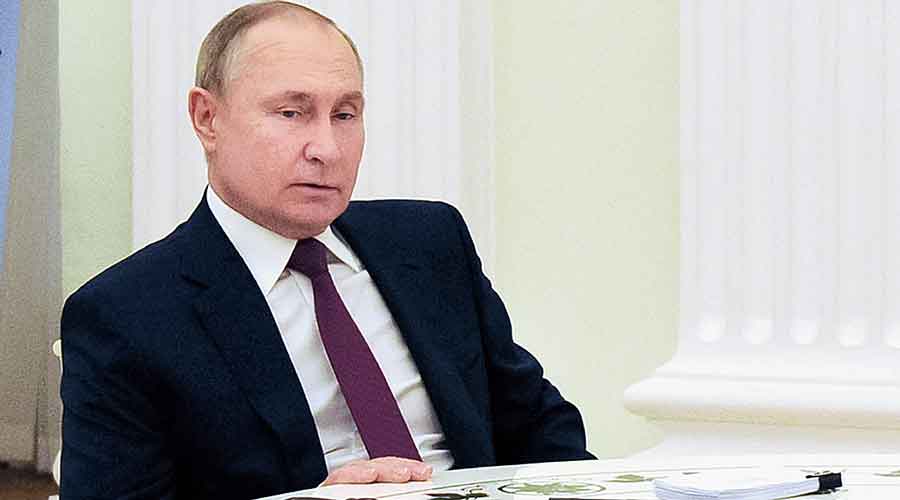Reaching into the sensitive energy sector for the first time, the EU on Friday formally approved its fifth round of sanctions against Russia over the invasion of Ukraine, banning coal imports and targeting more high-profile individuals and banks.
But these sanctions were harder to agree on than previous rounds, and important exceptions defanged some measures. That suggested the EU was reaching its pain threshold.
The banning of Russian coal, a $4.4 billion measure, would be effective immediately for new contracts, but at Germany’s insistence old contracts would be given four months to wind down, softening the blow to Russia and Germany alike.
And an ambitious proposal by the European Commission, the bloc’s executive branch, to ban all vessels operating for Russian firms from EU ports was watered down to only affect vessels bearing the Russian flag, accounting for about a third of 3,500 vessels operating in Russia.
The measure will include vessels that ditched the Russian flag after the February 24 invasion and registered in new countries, but it won’t impact a large number of vessels that operate for Russian firms but carry flags of low-tax countries, a popular practice in global shipping. Greece, Cyprus and Malta, which are major shipping and yachting destinations, argued that it would be too big an administrative burden to determine whether vessels were Russian-operated unless they actually bore the country’s flag.
Pink Floyd single
Pink Floyd, the 1970s psychedelic rock band, is releasing its first new track in almost 30 years to raise money for the people of Ukraine, the band said on Thursday. The recording, Hey Hey Rise Up, is a reworking of a protest song from World War I and features the Ukrainian rock star Andriy Khlyvnyuk.
(New York Times News Service)











